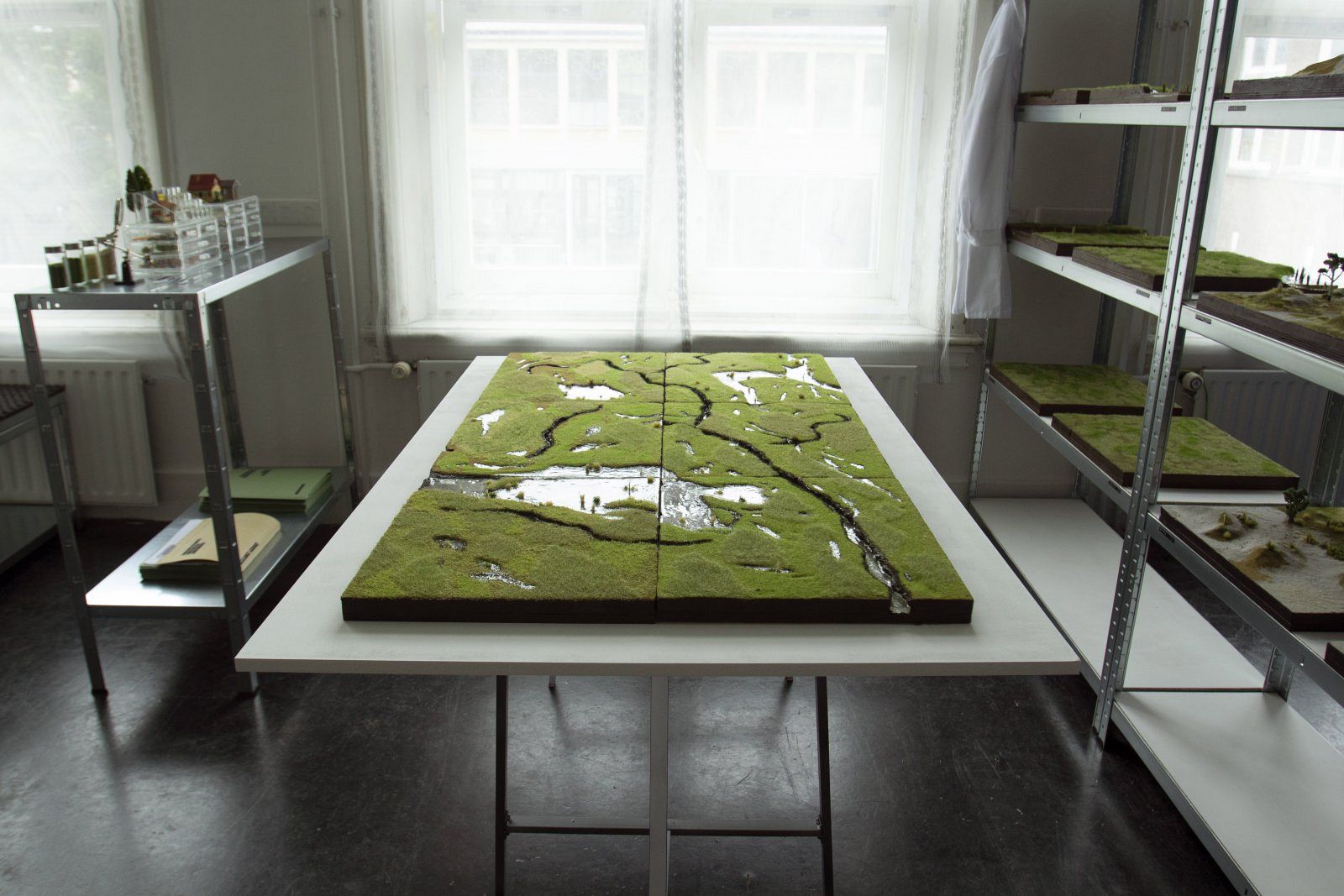
Katie Pelikan Baselj
Keywords: Nature, Human, Landscape
There is no place on earth that humans haven’t touched. This reality makes our desire for pure nature even more illogical. The Netherlands was built on manmade ground, but even here the myth of wilderness prevails. The country’s development of ‘new nature’ proves that we cannot engineer this longing out of hearts. Landscape Lab is inspired by the failed modernist idea that nature can be fully created, shaped, and maintained. In it, Katie Pelikan Baselj explores a fictional future where landscapes can be modeled to fit any combination of human desires. The maakbaarheid, or ‘makeability,’ of nature is pushed to new extremes.
Landscape Lab consists of a speculative lab as well as a video in 3 chapters. Each chapter explores the narrative of a scenario played out on each of the three model landscapes.
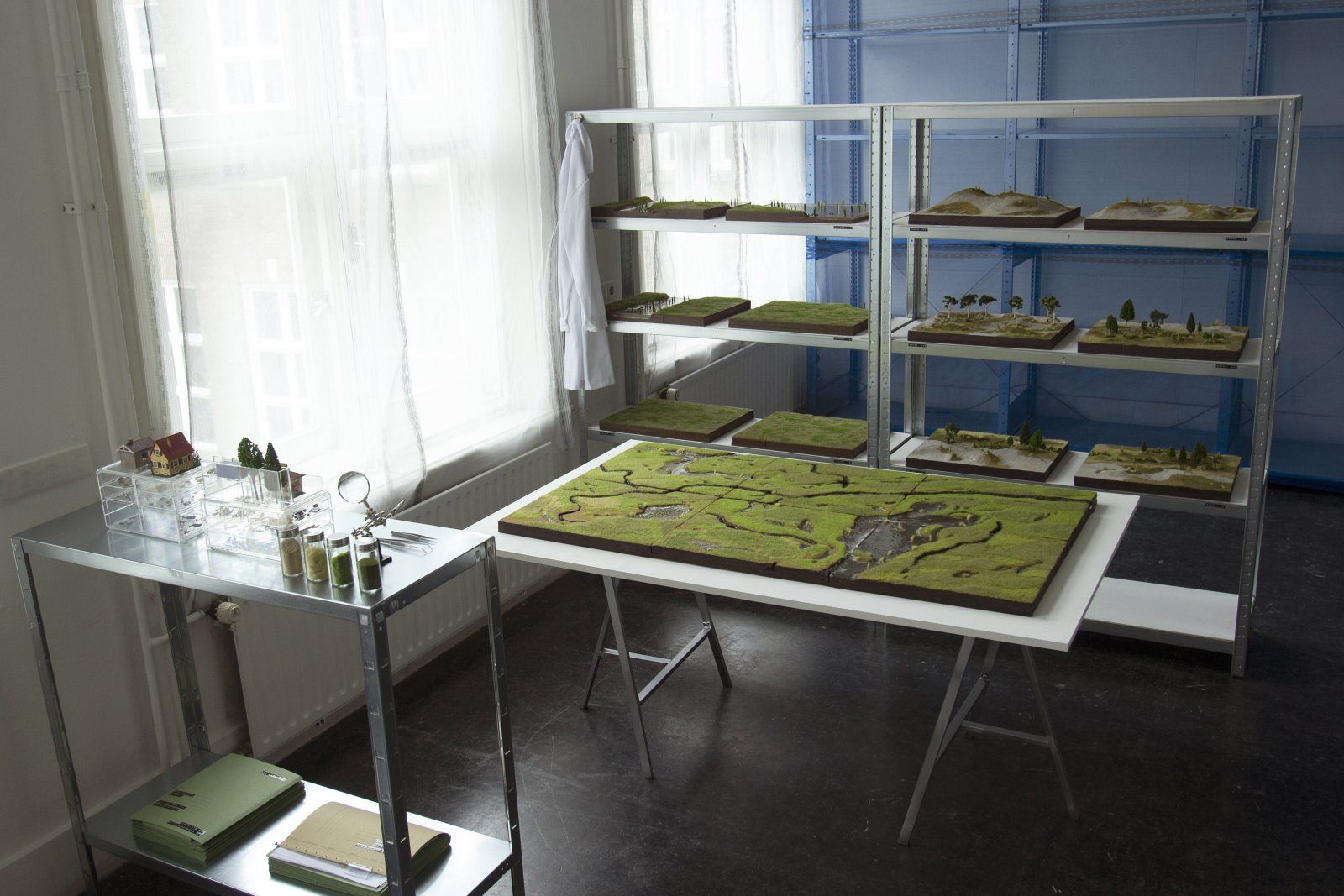
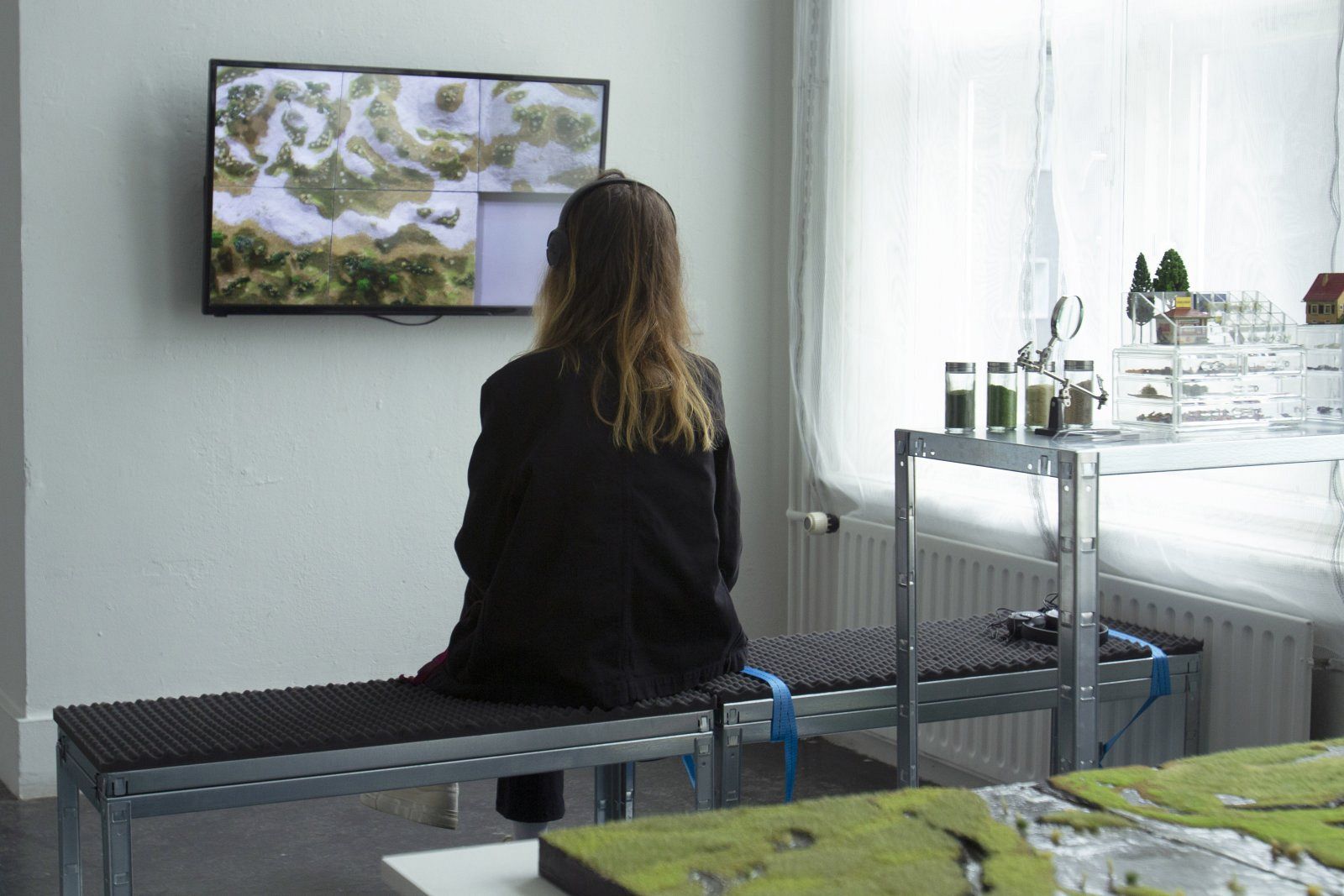
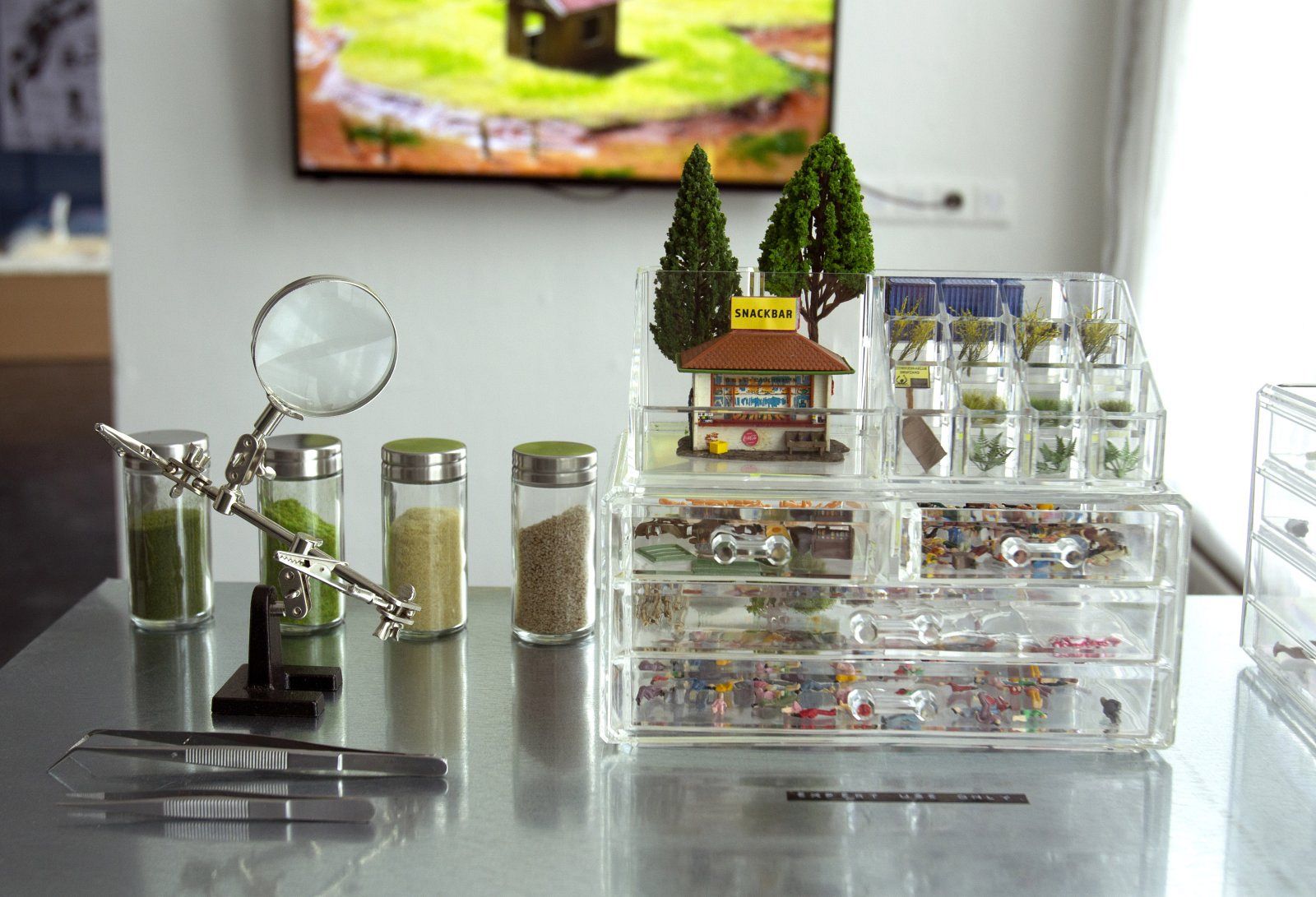
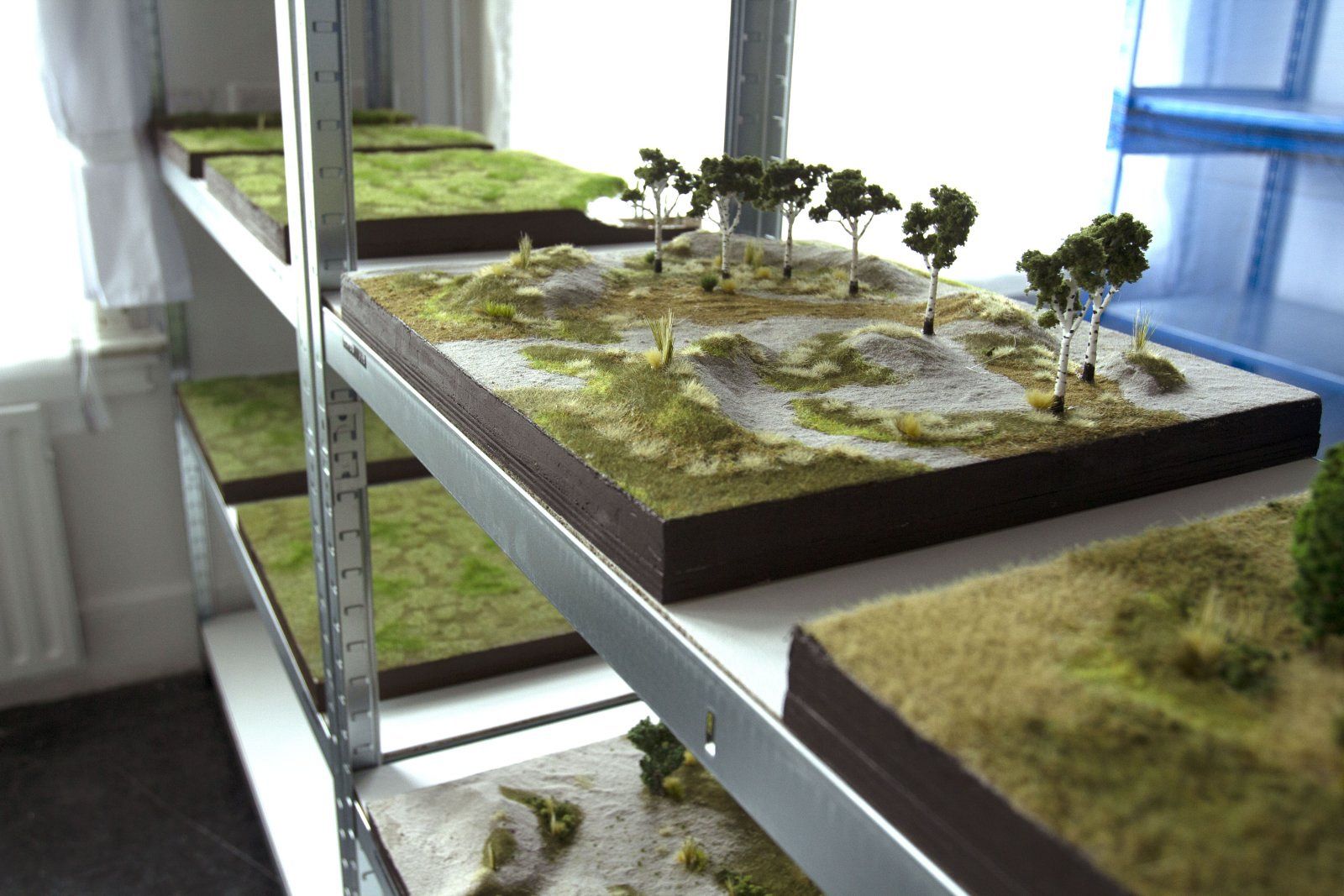
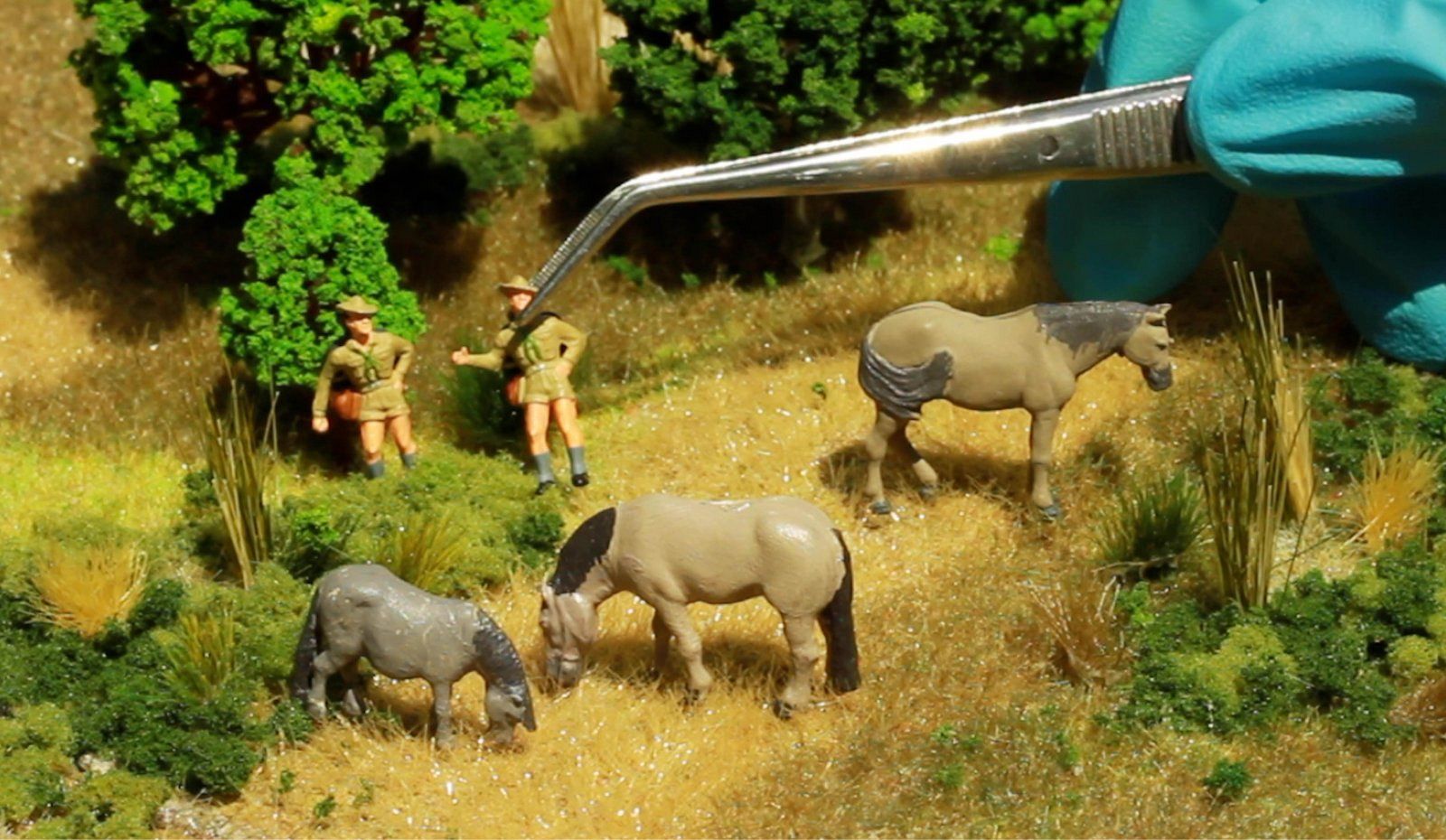
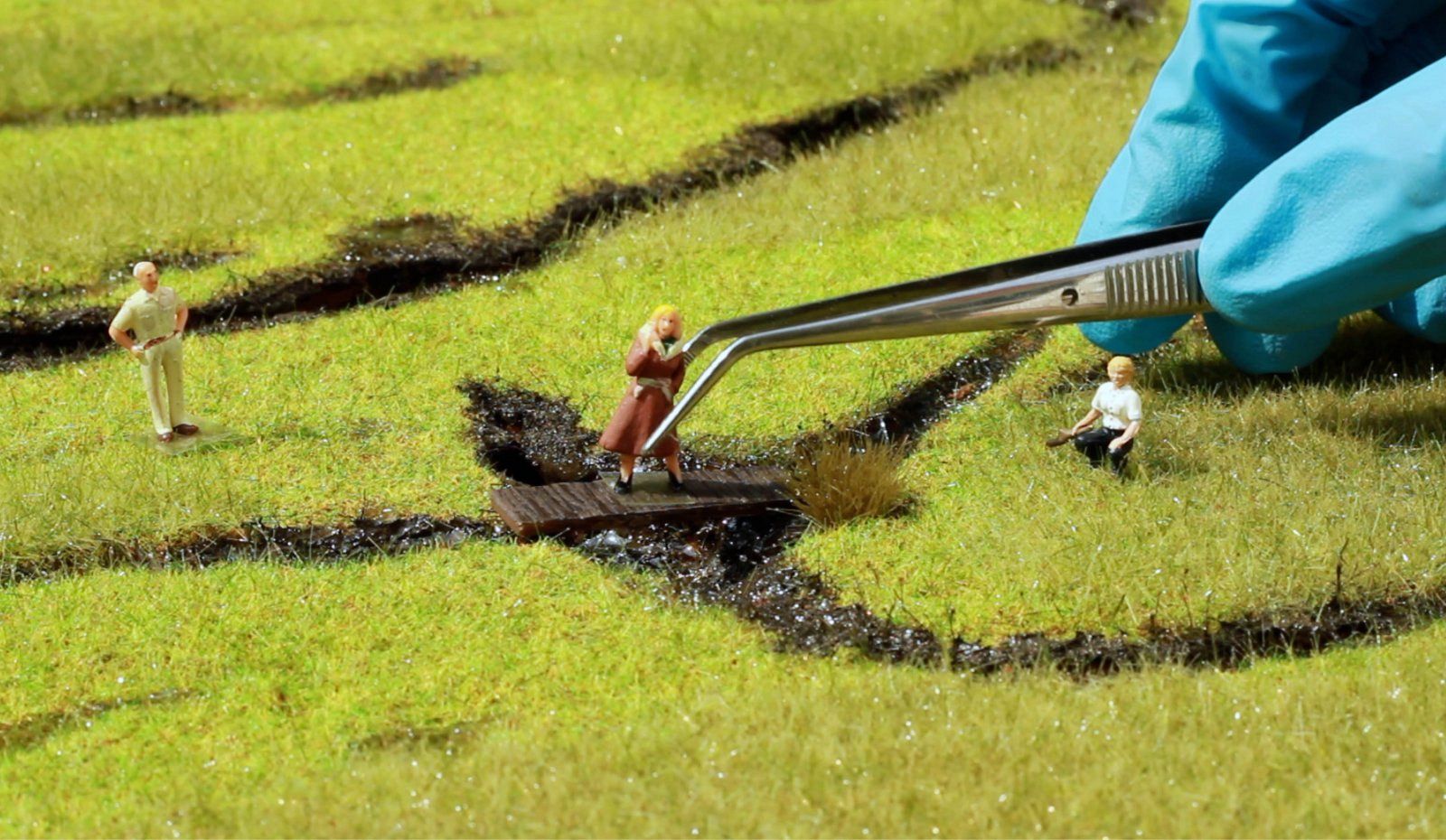
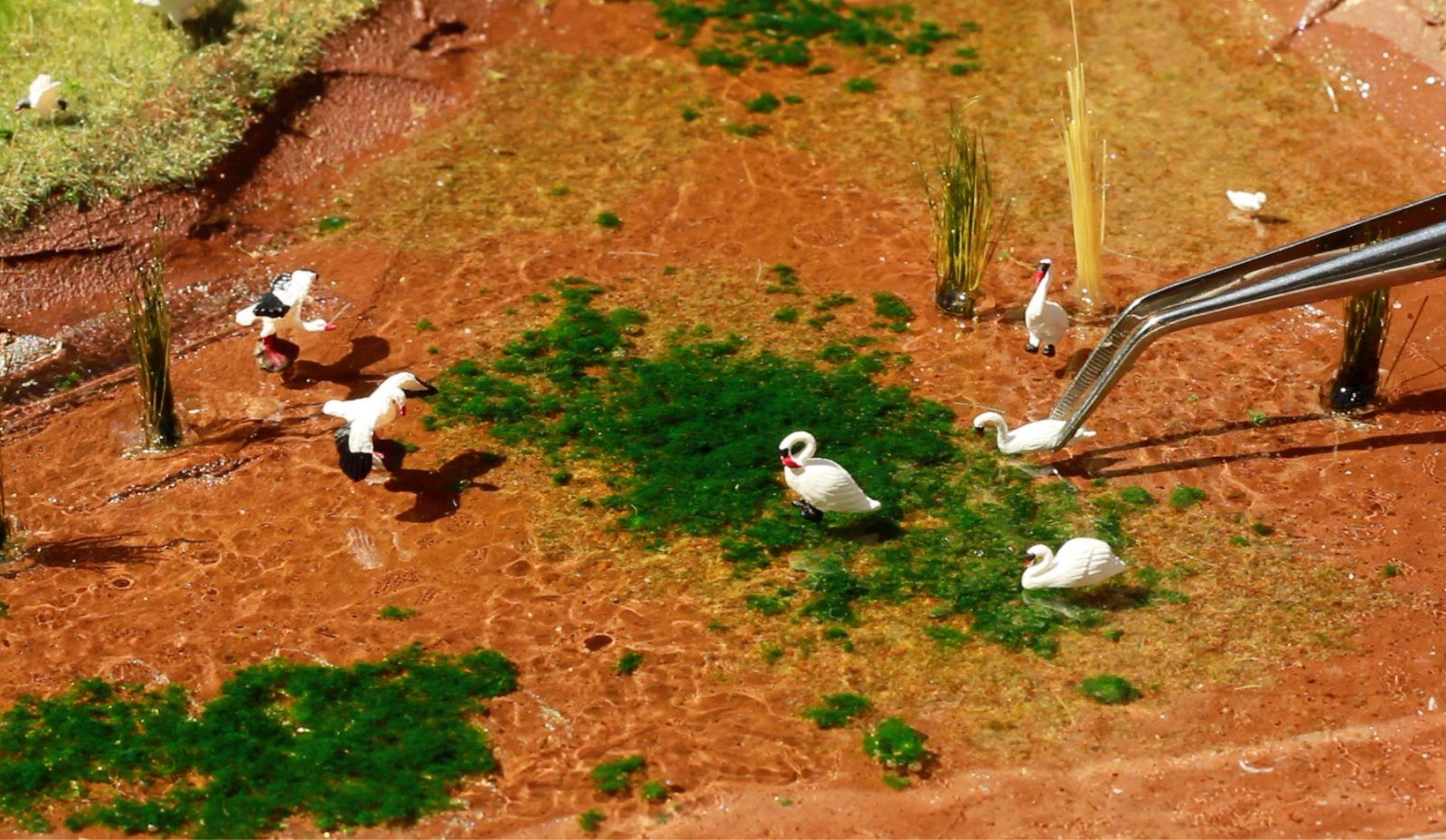
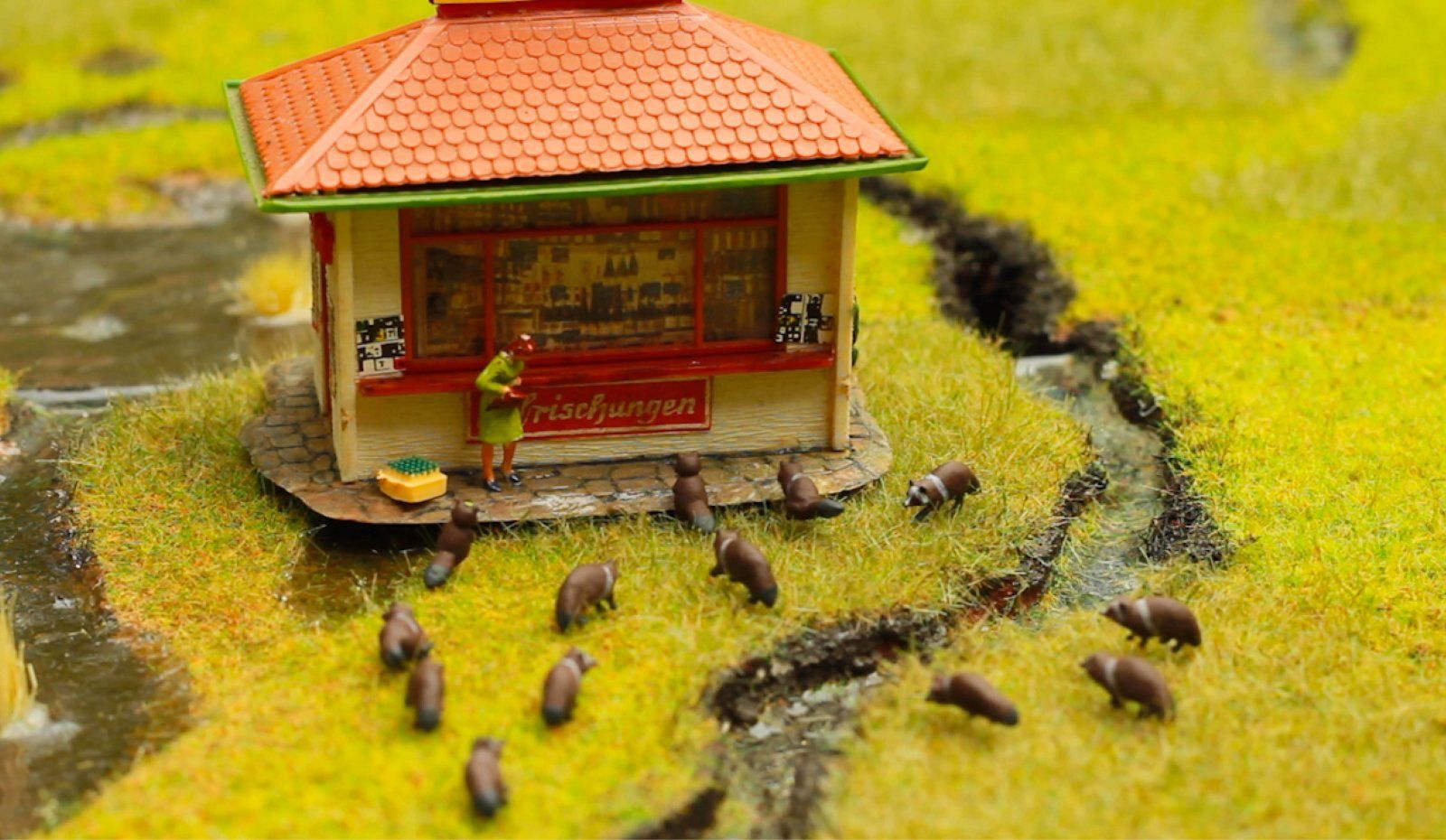
The World is Not Your Oyster: Artificial Islands as Imagined Neutral Ground
Thesis
Artificial islands emerge as new dreams of expansion against a backdrop of sea-level rise and mounting global tension. They are hybrid landscapes that hold empty promises of power and control. In this paper, I carefully examine how manmade islands perpetuate the myth of neutral ground on a seemingly blank sea, and both the human and non-human lives at stake. From safe havens for the climate-displaced, to military bases and luxury satellite icons, artificial islands are physical manifestations of humans conquering the natural landscape. But much like their natural counterparts, what is visible on the surface conceals a complex landscape below. It is urgent to challenge the “reclamation” of land for human use when it only sustains the extractivist methodologies responsible for the collapse of so many intricate ecosystems. A careful consideration of the materiality, processes, and jurisdiction that form artificial islands is needed to understand the consequences of expanding land into the sea.